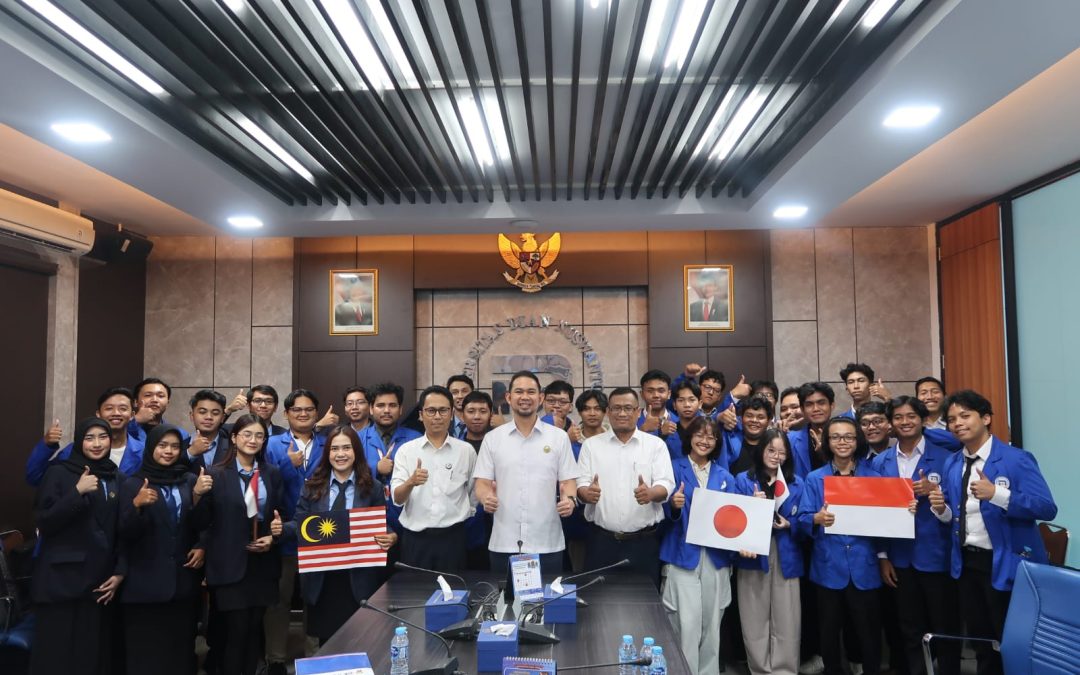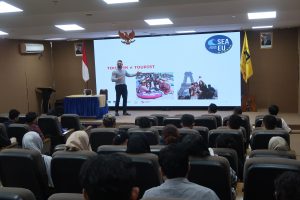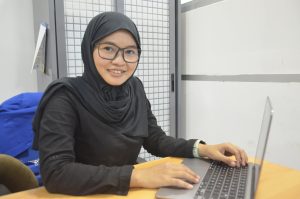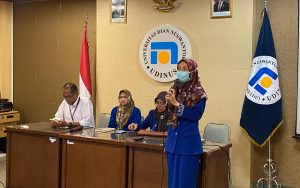Universitas Dian Nuswantoro (Udinus) berikan kesempatan kepada mahasiswanya untuk mendapatkan pengalaman kerja melalui program magang dan volunteer internasional. Kesempatan ini terbuka melalui program internship dan volunteer internasional yang dinaungi oleh Fakultas Ilmu Budaya (FIB).
There were 31 students participating in the program, who would depart in May and June. Prior to their departure, they bid farewell to the Rector of Udinus, Prof. Dr. Pulung Nurtantio Andono, S.T., M. Kom., who was accompanied by the Rector of the Humanities Faculty, Dr. Bayu Aryanto, S.S., M. Hum. The procession took place in the meeting room on the second floor of the G building at Udinus.
Bayu Aryanto explained that these programs involved five different companies from two countries, with four of them being in Japan and one of them in Malaysia. Eventually, students would be placed in a position they majored in.
“They will work in the hospitality industry, which mainly involves restaurants, hotels, and airports. Some of them will also be placed in companies working in automotive,” he explained.
Moreover, Bayu highlighted that students who participated in the volunteering and internship programs would get their credit hours converted. The number of credit hours is varied, depending on the duration taken by students.
“Udinus also gives students support in the form of recognition and credit hours conversion, ranging from 10 to 20 credit hours per semester, depending on how long their programs are. For a year of the internship program, students will get their 20 credit hours converted per semester, with a total of 40 credit hours. Meanwhile, in volunteering programs, students will have their 10 to 15 credit hours converted,” he uttered.
Support from the University
These international internship and volunteering programs are not only open to students from the Humanities Faculty but also to other faculties. Recently, students from the Economics and Business Faculty, as well as the Engineering Faculty also participated in it. They were given intensive training to hone their Japanese skills so they could fulfill the requirements, one of which was learning Japanese for 300 hours.
“For students who will work in Japan, it is a bare minimum for Japanese Literature students to pass the N4 certification. While other students need to only pass the N5 certification to participate. The Humanities Faculty provides intensive training two to three times a week so our students can be competent in Japanese. We also received training subsidies from Japan,” he uttered.
Eunike Santoso, one of the Japanese Literature students who would work as an intern in Sendai, Miyagi Prefecture, Japan, admitted that she received support from the university to prepare for her career in the Land of Rising Sun. This assistance came in the form of general knowledge, language skills, and mental support.
“The skills I need to prepare more leans to language skills for conversational and work purposes. Praise the Lord, as I received support from Udinus. I will particularly work in the sector of hospitality, which is relevant to my passion. Hopefully, I can further expand my work experience, as well as earn the tokutei ginou or worker’s visa there in Japan,” he concluded.
(Humas Udinus/Penulis: Ika. Editor: Haris. Foto: Humas Udinus)







